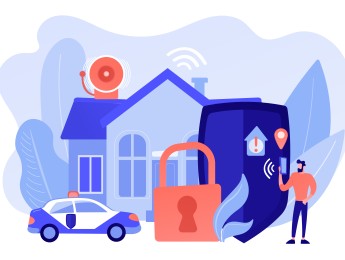In an age of digital natives and short attention spans, educators and trainers face the challenge of making learning both meaningful and engaging. Gamification — the application of game elements to non-game contexts — has emerged as a powerful strategy to motivate learners, increase participation, and improve outcomes.
This course equips participants with the principles, tools, and techniques of gamification to design compelling learning experiences. Through hands-on activities, real-world examples, and collaborative exercises, educators will learn to harness the power of play to enhance motivation and engagement in both physical and digital learning environments.
By the end of this course, participants will be able to:
- Understand the psychology behind gamification and why it works.
- Identify key game elements (e.g., points, badges, leaderboards, levels) and their educational applications.
- Design gamified lessons, activities, and assessments aligned with learning objectives.
- Evaluate and select gamification tools and platforms for classrooms and training.
- Foster learner motivation, collaboration, and persistence through game-based strategies.
- Assess the effectiveness and inclusivity of gamified learning experiences.
This course is ideal for:
- Teachers and lecturers at all levels.
- Instructional designers and e-learning developers.
- Corporate trainers and facilitators.
- Education technology specialists.
- School and academic leaders seeking innovative approaches.
- Anyone interested in enhancing learner engagement and motivation.
The course combines interactive lectures, group discussions, case study analysis, and hands-on design activities. Participants will experience gamified activities themselves and collaborate to design and present their own gamified learning scenarios.
Day 5 of each course is reserved for a Q&A session, which may occur off-site. For 10-day courses, this also applies to day 10
Section 1: Introduction to Gamification in Education
- What is gamification? Distinguishing gamification from game-based learning.
- Why gamification works: motivation theories and learner engagement.
- Benefits and potential drawbacks of gamification in learning.
- Examples of successful gamification in education and training.
- Workshop: sharing experiences of play and learning.
Section 2: Game Elements and Their Educational Applications
- Core elements of games: points, badges, leaderboards, levels, challenges, feedback loops.
- Storytelling and narrative in gamified learning.
- Designing meaningful rewards and recognizing achievements.
- Balancing competition and collaboration in learning environments.
- Workshop: analyzing a gamified activity and identifying its components.
Section 3: Designing Gamified Learning Experiences
- Aligning gamification with learning objectives and learner needs.
- Structuring progression and mastery through levels and challenges.
- Creating engaging scenarios, quests, and missions.
- Designing inclusive and accessible gamification strategies.
- Workshop: drafting a gamified lesson or training module.
Section 4: Tools, Platforms, and Digital Resources
- Overview of digital tools and platforms for gamification (e.g., Kahoot!, Classcraft, Quizizz).
- Integrating gamification into LMS and virtual classrooms.
- Designing analog (offline) gamified activities for low-tech environments.
- Evaluating tools based on usability, inclusivity, and alignment with goals.
- Workshop: exploring and testing gamification tools.
Section 5: Evaluating and Sustaining Gamified Learning
- Measuring the impact of gamification on engagement and outcomes.
- Gathering learner feedback and making iterative improvements.
- Avoiding “points fatigue” and keeping experiences fresh.
- Building a culture of playfulness and intrinsic motivation.
- Final group activity: presenting a gamified learning plan and peer feedback.
Upon successful completion of this training course, delegates will be awarded a Holistique Training Certificate of Completion. For those who attend and complete the online training course, a Holistique Training e-Certificate will be provided.
Holistique Training Certificates are accredited by the British Accreditation Council (BAC) and The CPD Certification Service (CPD), and are certified under ISO 9001, ISO 21001, and ISO 29993 standards.
CPD credits for this course are granted by our Certificates and will be reflected on the Holistique Training Certificate of Completion. In accordance with the standards of The CPD Certification Service, one CPD credit is awarded per hour of course attendance. A maximum of 50 CPD credits can be claimed for any single course we currently offer.
- Course Code IND08-112
- Course Format Classroom, Online,
- Duration 5 days








